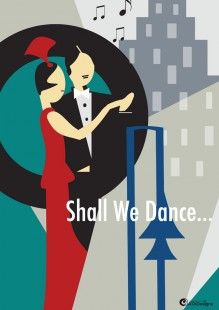Is there a difference between  shall and will? Both of these words help to make a verb future tense, for example, I go (present) versus I will go (future). So does it matter if you use shall or will?
shall and will? Both of these words help to make a verb future tense, for example, I go (present) versus I will go (future). So does it matter if you use shall or will?
Shall sounds pretty stilted these days — even to a conservative grammarian like me — and it is rarely used any longer. It is very formal. However, if you do want to use it, here are the “rules”:
1. Shall is used with first person (I and we):
I shall go to Europe next summer.
2. Will is used with second (you) and third person (he, she, they):
Did you say you will go to Europe next summer? They will go with you.
However, when determination or threat is implied in the statement or question, the opposite is done:
3. Will is used with first person:
I will go to Europe this summer regardless of how many hours I have to work to make the money!
4. Shall is used with second and third person:
You shall clean your room today! Your sister shall do her chores before she goes out.
5. Although Shall is pretty much outdated for the above uses, it is used for expressions such as Shall we dance? or Shall we go? These expressions imply a suggestion that we do something. You just wouldn’t say Will we dance? or Will we go? to mean the same thing.
6. Should and would are the same as shall and will. However, I would just forget entirely about these usages. We simply don’t talk this way anymore:
I should like to go to Europe next summer. Uncommon these days.
I would like to go to Europe next summer. Much better.
7. We do — and should– use should when we mean that something is necessary or desirable:
You should do your homework every night (for first, second, and third person).
8. Also use should to imply a condition or something that might happen in an “if clause”:
If I should be lucky enough to win the money, I will go to Europe.
9. Use would to indicate actions that are usual, or customary:
When I was a child, every summer we would go to Europe.
10. Also use would in an “if clause” that implies willingness.
If he would get a job, he could afford to travel more.
It is pretty much instinctive among native English speakers to use the could and should correctly. And don’t worry about using shall. It sounds a bit too formal for this world. Even for me — I say “it is I,” but I still don’t say . . .
I shall sign off now!
I will post a link when my interview is broadcast on public radio. (or I shall??)



Leave a Reply